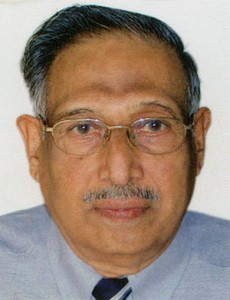July 31, 2014 diagnostic tests
It is high time that a formal course in ethics is made an integral part of medical education.
An administrator of a leading hospital in Mumbai, herself a doctor, told me once that the general practitioner was on his way out. I asked her how much a practitioner would be earning in Mumbai. Rs 20,000 a month, Rs 25000? Her reply was stunning! An average general practitioner would, she said, be lucky if he earns Rs 10000 from consultations. Many , she added, are packing up and looking for alternative avenues of employment. My own doctor packed his bags two years ago and shifted to his home town.
Others I know have found innovative ways of revenue generation. One doctor whom my family often consulted has rented part of the premises for yoga classes and presumably, is a partner in the venture- she has lent voice to a CD on yoga. Another has invested in a pharmacy to which he directs all his patients. A third has gone into medical insurance and yet another, into health care administration.
A tempting route to higher earnings is referrals which fetch good commissions- primarily referrals to labs for diagnostic tests. The patient often wonders whether a whole array of tests recommended by the doctor is really nexessary. But then when you go to your doctor, yo go with full confidence in him and his is the last word. Of course, in defence of the doctor it can be said that diagnostic tests are highly sophisticated today to permit doctors treat you on the basis of a detailed and precise diagnosis of the disease. But the temptation to make money through this route is strong enough to make doctors recommend tests even when they are unnecessary.
Unfortunately, even specialists and hospitals fall prey to this temptation. They are accountable to the management for returns, the ultimate bottom line and having installed costly equipment, have to see that they well utilised. The patient therefore moves from Xray to CT scan and MRI without being fully convinced the are required. A friend told me that in one hospital targets had been fixed for specialists and bonuses were given when the target was exceeded.
Where does one draw the line between ethical behaviour and greed, between judgemental error and exploitation? After all, the patient is helpless and solely dependent on the doctor, unless out of sheer exasperation, he looks for a second opinion.
Sometimes, the second opinion helps, as it happened to me. I got operated for my right knee in a leading hospital and after a successful operation by a very helpful ortho surgeon but then developed prostatic problems. I was referred to a urologist and was kept going on tests for two months. Finally I decided to go to another equally good hospital and was given prompt attention including a prostate surgery at costs which were much lower.
When we talk of ethics in business, we cannot ignore the fact that medical practice is also ” business”. As in all businesses , ethics counts and pays in the long run.




















Join my Network